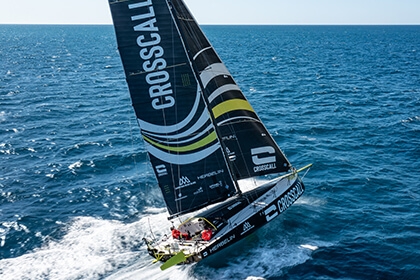
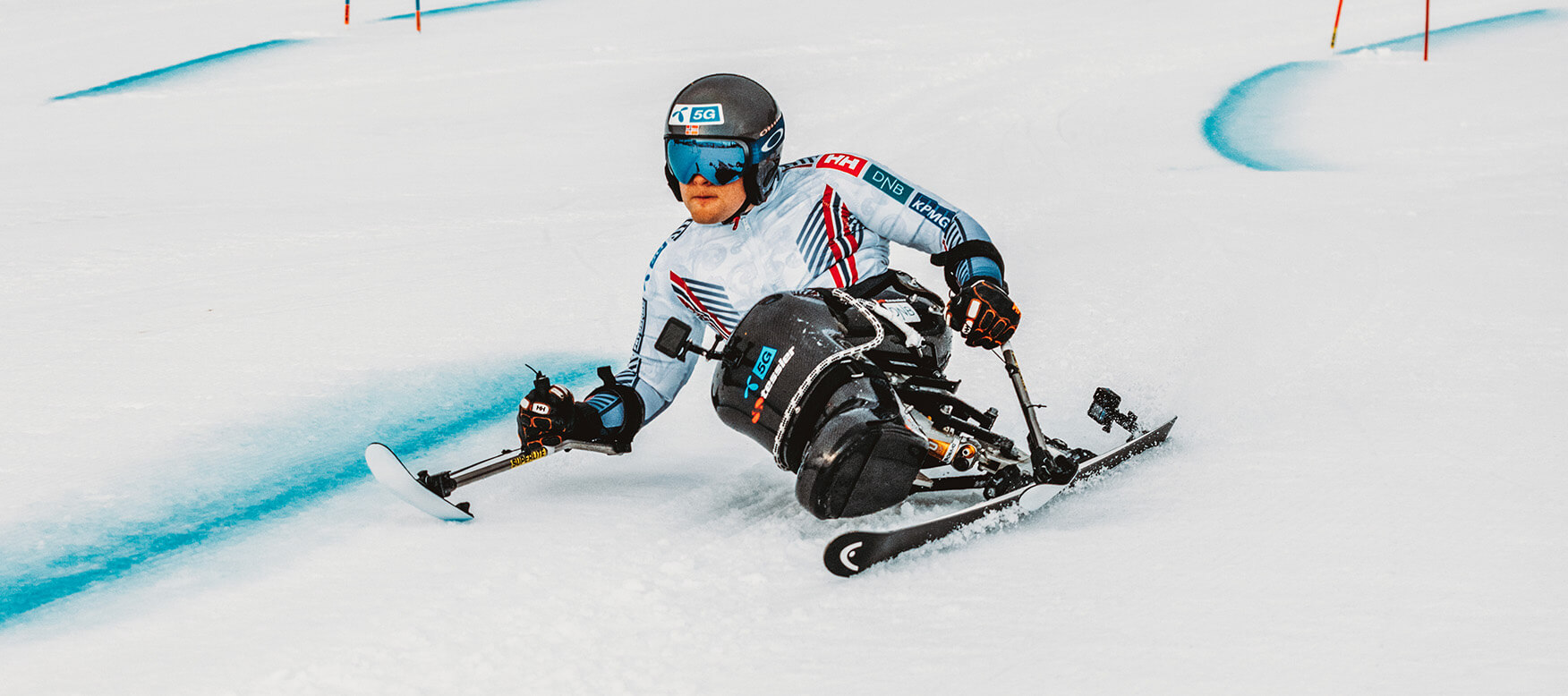
The first hour
Preparing for success with Jesper Saltvik Pedersen
October 10, 2023
6 min read
Four golds and a silver at the Beijing 2022 Winter Olympics, four golds and a bronze at the 2023 World Championships — being born with spina bifida and bound to a wheelchair hasn’t slowed Jesper Saltvik Pedersen down. In fact, it has made him one of the fastest skiers alive.
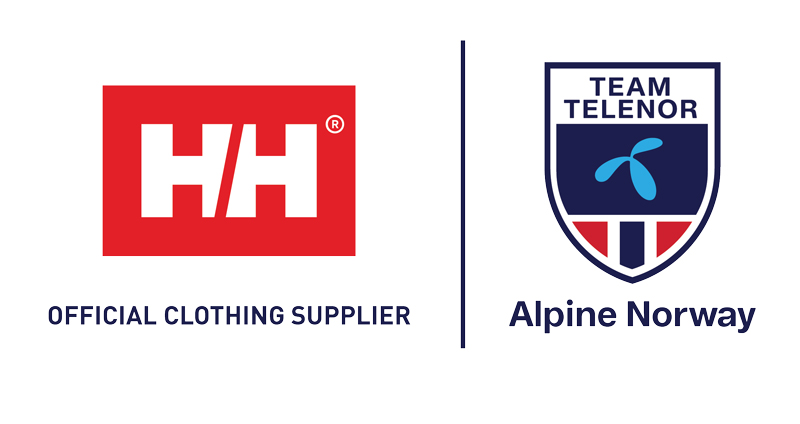
Jesper’s journey is one of resilience and a commitment to conquering both mountains and personal hurdles. He defies conventional limitations and embraces challenges head-on with precision and determination. And the secret to his success should make early risers of us all.
The magic hour
The first hour on the mountain is more than just a routine. It’s an hour that holds immense significance in alpine racing, for you only get one chance to show what you’re capable of. The meticulous preparations, the course inspection, and the focused warm-up all contribute to that one run where everything clicks into place.
“For me, the first hour of the day is the most important because that's when I set the tone for what's coming. I think it's important to plan what you want to accomplish during the day. Stick to the plan and do what you plan to do. But of course, if something unintentional happens, you must be ready for that, so expect the unexpected, go with the flow, and try to make the best of things,” says Jesper.
Available in select markets
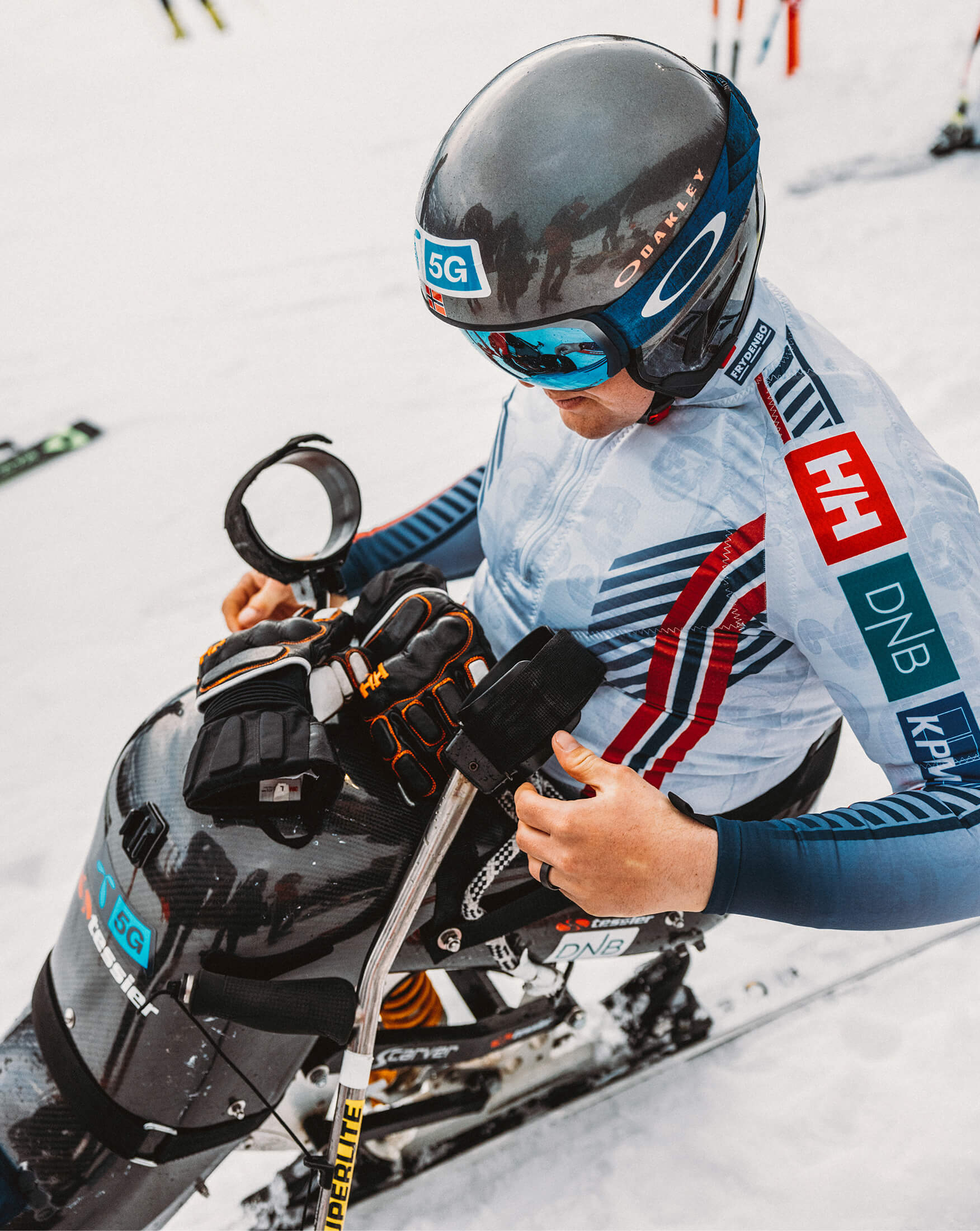
Routines, not rituals
Jesper understands the importance of routines in anchoring his performance. Yet, he's cautious not to transform routines into rituals that breed rigidity.
“It’s important to have routines but they can’t be too strict. You’re in deep water if they develop from a routine to a ritual. I think I have some healthy warm up routines but it can’t be like, if I can’t do them 100% I can’t perform at my best.”
He believes in starting the day with a hearty breakfast, ensuring his body is primed for the day-long challenges ahead. A deliberate warm-up routine, guided by a physiotherapist, not only safeguards him from injuries but also readies him to perform.
“All the preparations are key, but the most important thing is probably the inspection. You have to internalize the course and have a clear plan of what to do in every situation.”
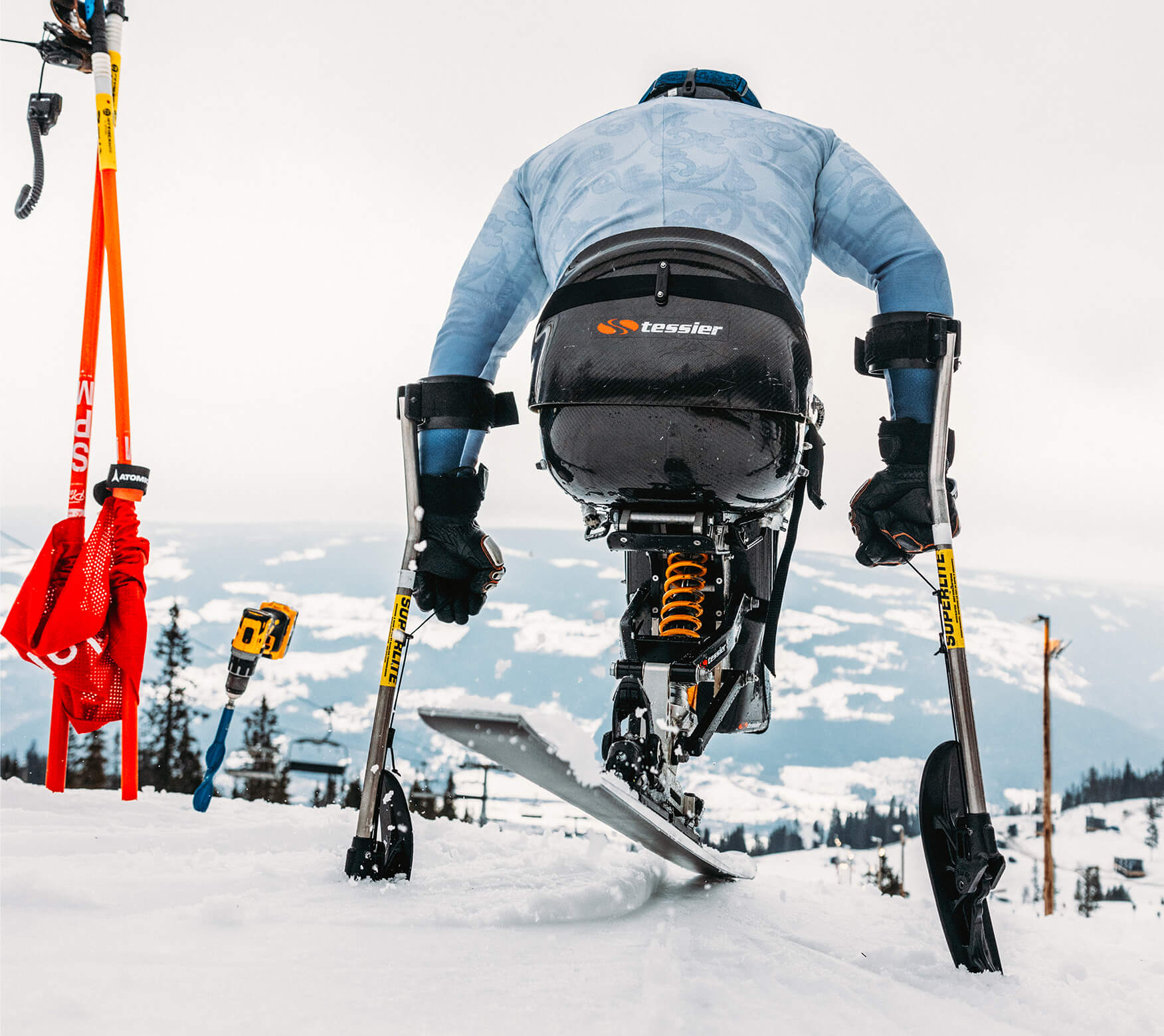
Morning glory
“In Norway we have some amazing mornings when we're up at five o'clock and get the sunrise on top of the mountain. It’s an amazing feeling—only you and nature and the course,” says Jesper.
Although he’s not a morning person by nature, he respects the fact that alpine skiing is a sport where you have to get up early. “To get the best out of the conditions, we have to utilize the night frost and light and good snow you find early in the morning. Because when the sun comes up, the quality of the snow usually worsens,” he says.
Being the first one on the hill also signifies that you have done one thing right already, which makes it easier to find a good flow. It sets the stage because if you're there before your competitors, you show them that they're already behind you from the start of the day.
When you wake up by yourself at five, then you know that you're an alpine skier.
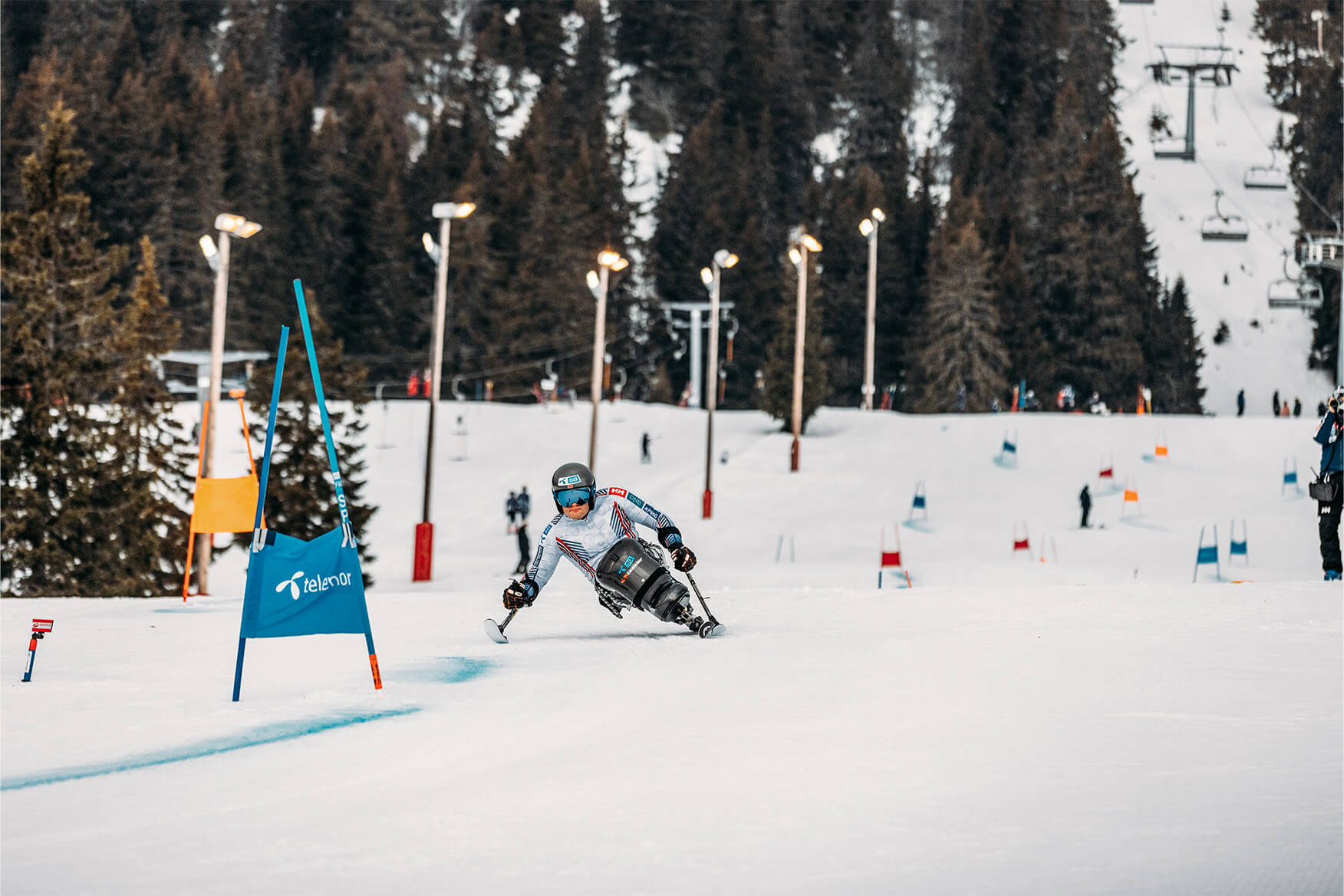
The importance of failure
There are always things to improve as an alpine skier. You always want to become a little better and challenge yourself to go even faster when you may think that you're at your limit. The perfect turn or the perfect run isn't done yet.
“To try to be on the edge of what is possible is something that keeps you moving forward. And sometimes you have to fail to learn where your boundaries are. To make mistakes is a natural part of what we're doing. But of course you don't want to be doing that in races,” Jesper explains.
“Training is a place where you’re allowed to make mistakes. And when you do, you just want to go up and do it over again, because it's not good to end the session with a bad run. For me, it's important to always end on a high note and have a good feeling when I stop for the day. So if I crash in what was supposed to be the last run, I usually take one more because I don’t want to feel like I messed up the last thing I did before going down from the mountain.”
You can’t just skip a gate. If you do that in training, it’s going to be a habit in races as well.
Beyond the individual
Many spectators probably view alpine skiing as an individual sport, but for Jesper and the rest of Team Telenor Alpine Norway, it’s quite the opposite.
“Alpine skiing is a team sport, except for the two minutes when you're actually competing. So to work as a team is important. And I think getting up early and having a genuine team spirit is something that makes us better.
“You need to appreciate everybody who’s around you that makes this possible – coaches, teammates, everybody works for the same results and helps each other become better versions of themselves, not only on the course, but also as humans. We’re all on the same journey, and even though we’re different individuals, we can learn a lot from each other. It’s important to have people to talk to and discuss with, people that can challenge you and what you think. The athletes may have other ideas than the coaches, and we learn from each other and make each other better every day.”
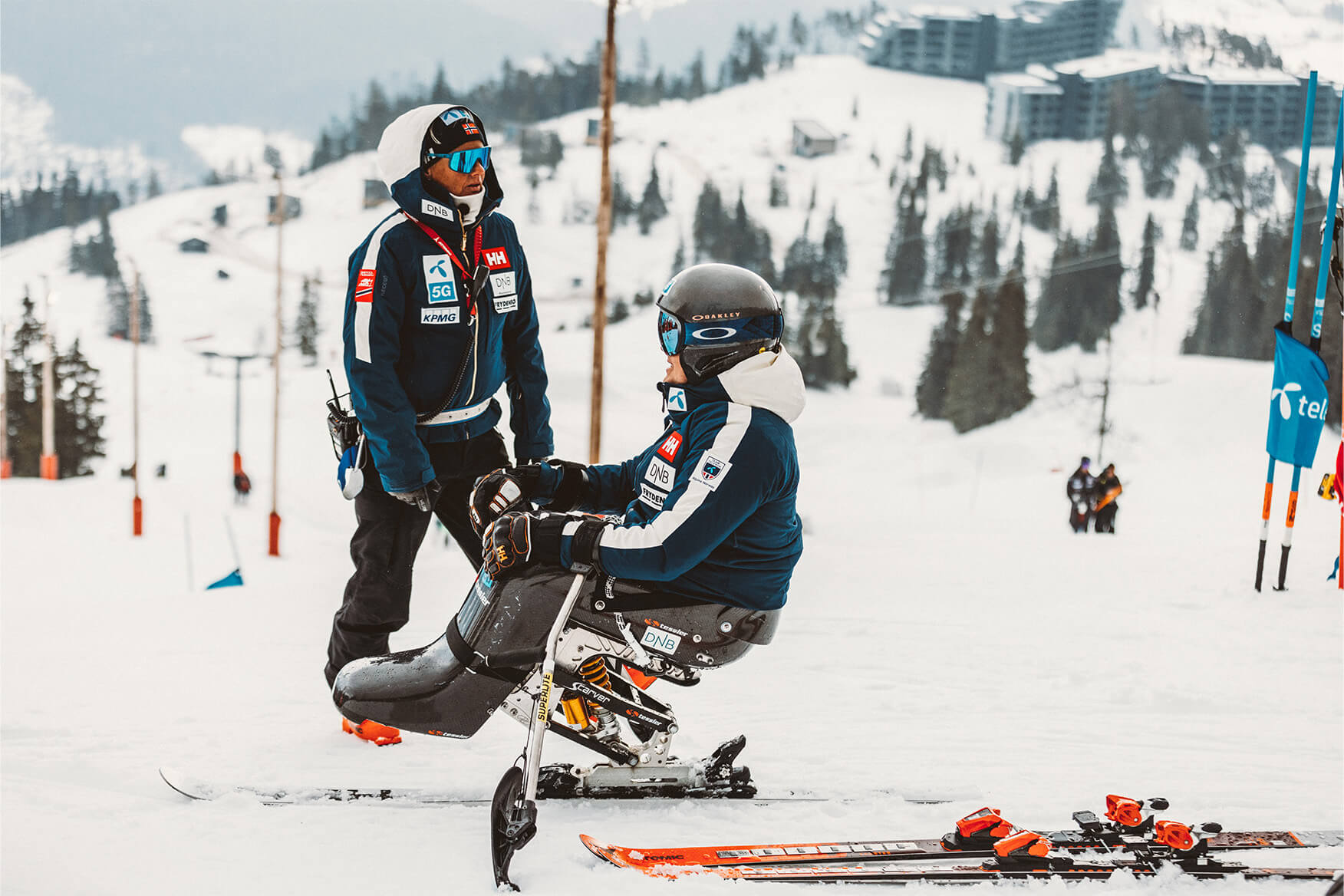
The fun stuff
For athletes, it's important to have a space away from training and competitions – a place where they can just have fun. For Jesper, this space is at his family’s cabin in the mountains. Here he’s able to just ride powder with his sister and have fun without thinking about red and blue gates.
“There's a balance to everything, and you have to love what you do. My parents took me out skiing the first time when I was two years old. Not being locked to a wheelchair and switching to my ski and just going fast in the mountains, as fast as everybody else, is an amazing feeling of freedom. It just gives me so much.”
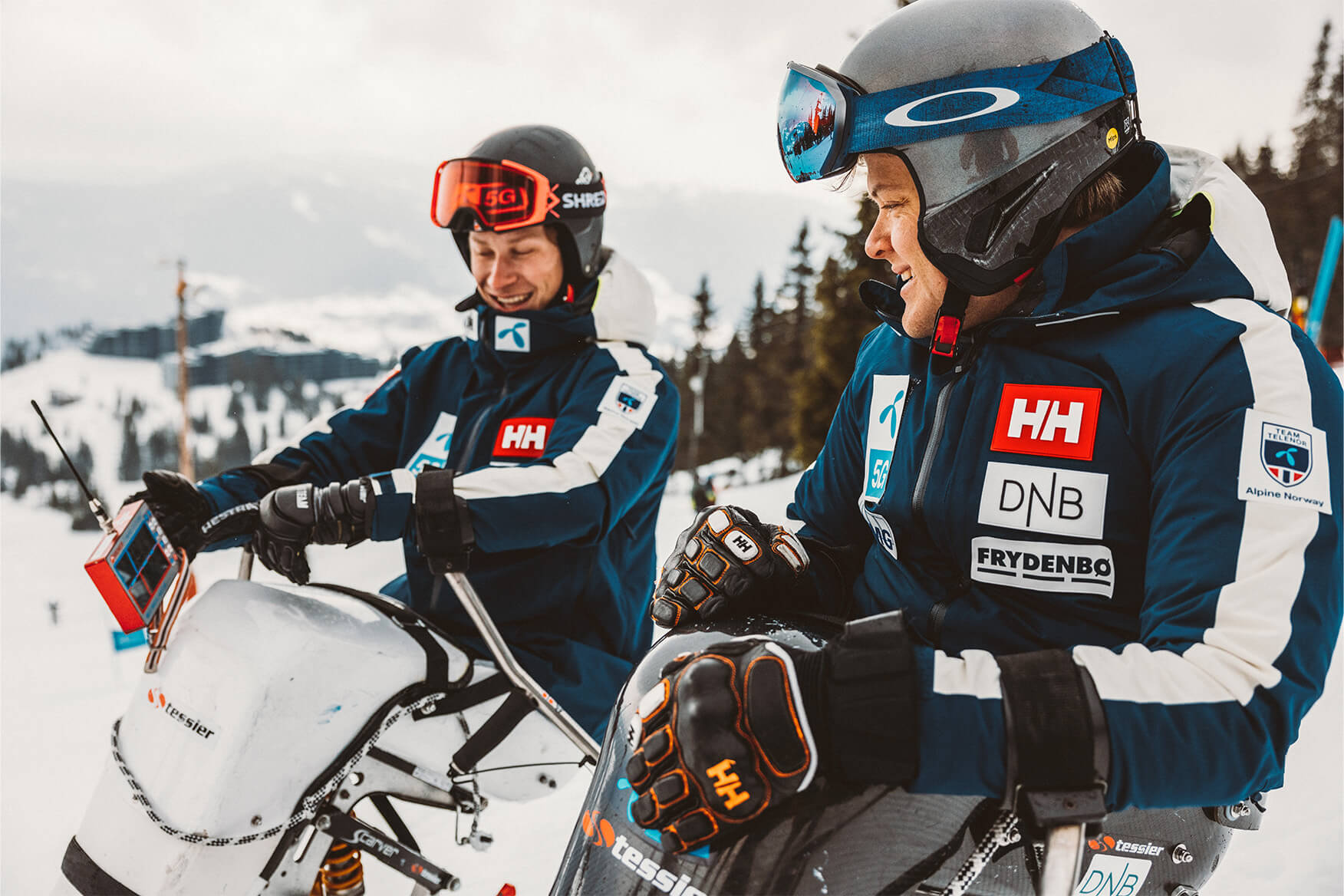
Sacrifice
Getting up early and making the most of the first hour in the mountains, means sacrificing time with friends and family. And it’s not for everybody.
“We who do it really enjoy it. To be early up and first one on the hill makes you feel like you’ve done one thing right even before you've started. Then it's easier to find a good flow and do your best in training as well.”
“Still, there are usually coaches that set the stage for us and have been out salting and preparing for hours before we wake up. So we might not be the first guys out there but by being at our best we show the coaches that we appreciate their work because they've sacrificed a lot. It's a game where everybody is doing their best in order to become better. And that's what’s needed to be part of the team and to become the best in the world.”
Aim to be a bit better when you go to bed than you were when you woke up.
Team Telenor Alpine Norway
The team is on a mission to make the 2023-2024 season the best ever, and we're proud to be along for the ride and help bring home the gold.
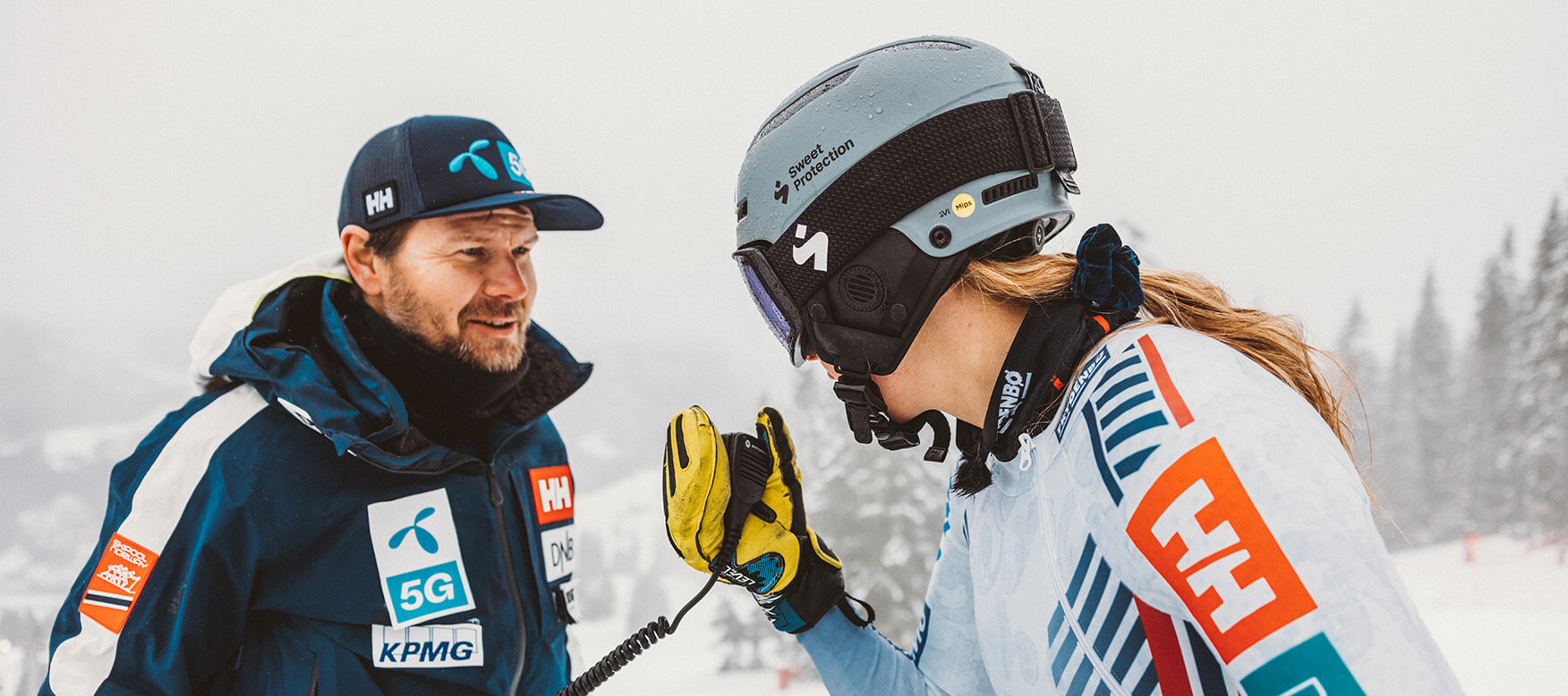
Follow Team Telenor Alpine Norway:

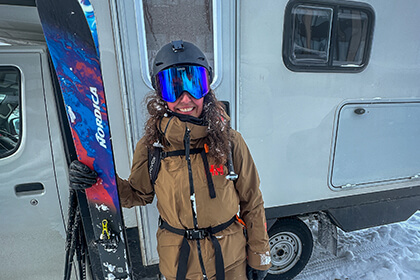
October 21, 2025 10 min read
How to plan your ski trip to Japan
Skiing Japan with Nat Segal: Hokkaido RV adventure, volcano tours, and how to thrive through a dry spell.
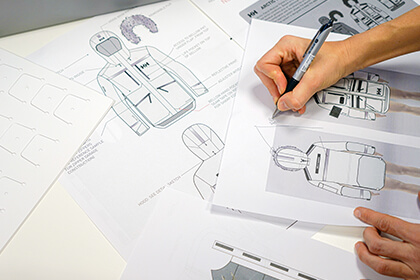
September 29, 2025 4 min read
Behind the design: The Arctic Patrol Down Parka
An inside look at how Helly Hansen designed the Arctic Patrol Down Parka with insights from Arctic scientists for extreme conditions.